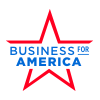How Politicians “Shake Down” Business for Campaign Funds
For decades now, over dinner table conversations and during national political debates and talk shows, Americans have been hearing the call to change the way money influences our elections — and yet the problem remains unsolved. For their first bill in the 116th United States Congress, Democrats proposed the For the People Act (HR1), which focuses on expanded voter access, election integrity, election security, and reducing the influence of money in politics. The bipartisan Political Accountability and Transparency Act (HR679) calls for better disclosure of political ad funders, as well as restrictions on the use of campaign funds for personal use. Once again, campaign finance reform is generating intense debate across the nation and creating pressure to act in Washington.
Reform is typically viewed as a way to protect politicians from the influence of powerful lobbyists — and their checkbooks. House Judiciary Chairman Jerry Nadler (D-NY) cited the political influence of the National Rifle Association as the reason background checks on gun sales haven’t been passed, and pharmaceutical industry lobbyists as the reason bills to curb prescription drug costs were defeated.¹ In essence, he is saying a kind of legalized bribery prevents progress on issues where powerful interests have a financial stake.
Nadler’s statement, however, fails to tell the whole story. While there certainly are businesses that influence decisions in Washington through contributions, at the same time there are politicians that use their own power to “shake down” businesses for campaign contributions. In other words, it’s extortion, and lawmakers on both sides of the aisle do it.
One of the methods politicians use to extort money is by creating a “milker bill.” A milker bill is brought to the floor of Congress with no real intention to pass the bill into law. Instead, the bill’s main purpose is to solicit campaign contributions from parties who have an interest in the success or failure of the bill. In 2011, the Obama administration introduced two bills — the Stop Online Piracy Act and the Preventing Real Online Threats to Economic Creativity and Theft of Intellectual Property Act — to extract funds from supporters in Hollywood who wanted the bills to pass and Silicon Valley who wanted the bills to fail.² Using these differences, the Obama Administration created a funding war — aka a “double-milker bill.” Suddenly, on Jan 14th, 2012, the administration removed the bills from the floor, walking away with millions while alienating supporters on both sides of the issue.
Another tactic used in Congress is known as the “tollbooth.” Before a big vote takes place, the Speaker of the House or a committee chair will create a procedural obstruction. Those in favor of the bill are subtly encouraged to make a campaign contribution if they want the bill to continue to a vote. If the amount of money is too low, or if the money from opposition is higher, the bill withers away in constant procedural delays. House Speaker John Boehner (R-OH) utilized this tactic by delaying the Wireless Tax Fairness Act, Access to Capital for Job Creators Act, and Small Company Capital Formation Act, collecting over $200,000 in campaign contributions with just three bills.²
New York Times best-selling author and investigative journalist Peter Schweizer has made a career by informing the public about Washington’s hidden tactics, and his research on political extortion is a great resource. For a more in-depth analysis, please see his 2013 book Extortion: How Politicians Extract Your Money, Buy Votes, and Line Their Own Pockets.
As American voters and politicians debate how to improve campaign finance and reduce political corruption, the reasoning behind these reforms often tells an incomplete story. By recognizing that campaign finance reform will also protect businesses from manipulation by politicians, we can align the interests of the business community with the public interest and greatly increase the likelihood of achieving meaningful reform.
Want to know more or get involved? Contact us at info@bfa.us.
This post was researched and written by Business for America intern Srikar Chava, a University of California, Berkeley undergraduate.
